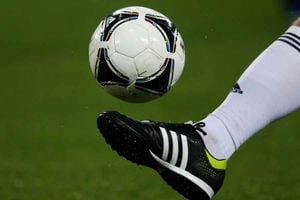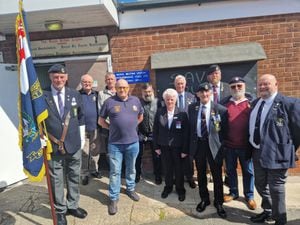FC United: An alternative footballing model?
FC United, founded and run by breakaway Manchester United fans, come to face with Stourbridge in a seventh tier league match this weekend. I looked at whether there is anything the professional game can learn from a fan ownership model in grassroots sport.

To many football fans, FC United must represent the ideal footballing model. The club is owned and run by its supporters, who can buy a share for an annual membership of £12 (£3 for children). Fans take pride in being able to stand on the terrace and vociferously back their team. Business interests and detached owners are not part of the club. In the eyes of many fans, FC United have rejected all that is wrong with the modern game. The symptoms of a game overcome by corporate corruption - high ticket prices, kick-off times ruled by the whims of television and lifeless match day atmospheres – are a thing of the past. As they proudly sing on the terrace: "When FC United go out to play it's 3 o' clock on a Saturday, we don't work for Sky Sports anymore!"
Escaping the business interests and corruption of the Glazers, FC United fans appear to have founded a utopian footballing model. Something similar to the one found in the top tiers in Germany, where fan ownership rules and football remains the people's game.
Yet is this model sustainable? And is it one which can be followed more widely in England?
Initial targets for FC United drawn up in 2006 included gaining promotion to the Conference North, reaching an average attendance of 5,000 per game and building the club's own stadium by 2009. These may have been over ambitious, but fan ownership as a model has certainly not failed. The club has won three promotions since its formation in 2005, and is now set to complete the construction of its new 4,500 capacity stadium, Broadhurst Park, in December. Costing around £5.5 million, of which around half was raised by supporters, the stadium demonstrates the potential effectiveness of fan ownership.
Perhaps most importantly, this success has been achieved by staying true to the club's core principle. The club states in its manifesto that: "Above all we want to be seen as a good example of how a club can be run in the interests of its members and be of a benefit to its local communities." The new stadium is an example of this. Situated in Moston, a working class suburb in north-east Manchester, members have ensured FC United remain true to the working class roots of the sport. As well as driving the funding, supporters have democratically shaped the location of the stadium. Fan ownership and power has so far dictated the evolution and success of the club.
The next few years may offer a more stringent test of the fan ownership model. The negative effects of television, high ticket prices, and modern stadia are almost non-existent in the non-league.
For fans of non-league teams there is a strange fear of too much success. It stems from the fact that moving into the football league may take away the beauty of watching non-league football.
FC United are a club of high aspirations. In the long-term they aim to reach the football league. There is nothing wrong with that. Yet achieving these ambitions may soon challenge the club's ethos and fan ownership model. Even in the Conference Premier, kick-off times are changed for television schedules, and with BT Sport showing thirty games per season, FC United are likely to be a popular choice for television companies. Fans are not working for Sky anymore, but they may soon find themselves checking the BT Sport schedule for rearranged fixtures.
Time will tell whether FC United can change football and the way it is run. The evolution and future direction of the club may well determine whether such a model can become a new alternative for others to follow. The model is revolutionary; whether it can revolutionise English football will be the next question.
This weekend FC United of Manchester visit the War Memorial Athletic Ground for a league clash with Stourbridge FC.





